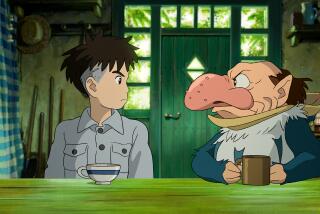NONFICTION - March 10, 1996
- Share via
THE LIFE AND DEATH OF YUKIO MISHIMA by Henry Scott Stokes (Farrar, Straus & Giroux: $15; 305 pp.). On Nov. 25, 1970, 45-year-old Yukio Mishima finished his 1,400-page, four-part novel “The Sea of Fertility” and committed ritual suicide at a Japanese army base near Tokyo after failing to rouse the troops to attempt a right-wing coup. Henry Scott Stokes, a financial correspondent for the Times of London who had known Mishima socially, pondered the meaning of the writer’s death and wrote this biography in 1974. His thesis--that Mishima yearned to integrate artistic and martial values, as the feudal samurai had; that he planned his death years ahead and wrote “The Sea of Fertility” knowing that he and it would come to simultaneous ends--is still considered valid.
This updated edition acknowledges that Mishima’s reputation has declined in the last 25 years but argues that this is a result of cultural trends Mishima predicted and tried to resist: “Japan will disappear. It will become inorganic, empty, neutral-tinted; it will be wealthy and astute, a large economic power” without a soul. Today, Stokes says, Japan is producing “no more great movies, no more novels of substance, no more important art. . . . The nation stands for nothing.” An extreme judgment, worthy of Mishima himself. Stokes is on firmer ground, though, in asserting that Mishima, a very untypical Japanese who often deplored Western influences, is still the “voice” from Japan, the “voice” that carries most clearly to the West. “He is still, and perhaps always will be, the most widely translated Japanese author.”
More to Read
Sign up for our Book Club newsletter
Get the latest news, events and more from the Los Angeles Times Book Club, and help us get L.A. reading and talking.
You may occasionally receive promotional content from the Los Angeles Times.










